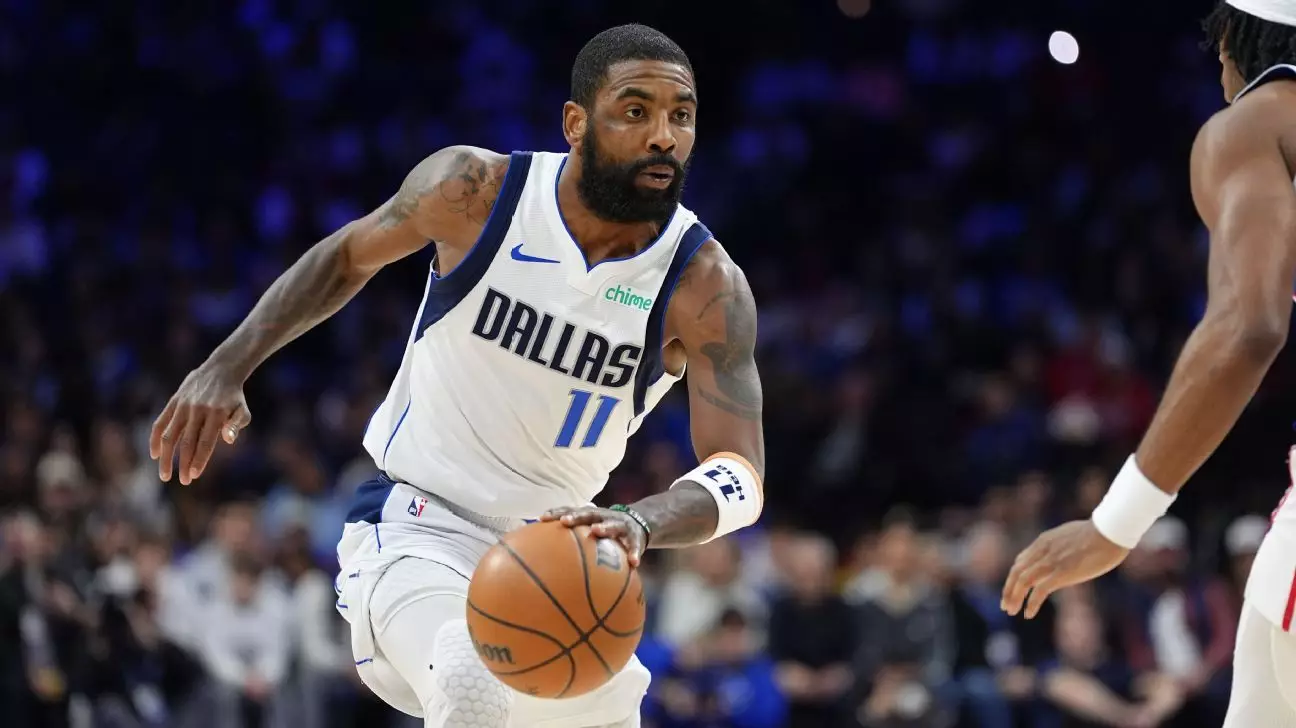In an intriguing turn of events during the recent All-Star Weekend, Kyrie Irving, the star guard for the Dallas Mavericks, revealed his desire to switch allegiances from Team USA to Team Australia. Born in Melbourne, Irving is exploring the possibility of representing the Boomers in the 2028 Olympics set to take place in Los Angeles. His aspirations prompted a series of questions, not only about his eligibility but also about the implications of such a decision on his career and the broader basketball landscape.
Irving’s declaration raises essential considerations regarding the bureaucratic hurdles he must clear to compete for Australia. He underscored the complexity of the situation during his comments, explaining that he is actively navigating the necessary paperwork to establish his eligibility. This involves seeking the green light from multiple governing bodies including USA Basketball, FIBA, and Basketball Australia. The intricate nature of international sports regulations adds another layer of challenge to his ambitions.
Having previously represented Team USA at the 2016 Rio Olympics, where he played a key role in securing a gold medal, Irving’s potential switch brings a poignant layer to his athletic identity. It poses the question of loyalty versus opportunity in professional sports, particularly as he contemplates what this shift would mean for his legacy. Despite a distinguished past with Team USA, his absence from the last two Olympic rosters suggests a desire for change—one that may be rooted in personal identity given his Australian heritage.
Australia’s national basketball team, known as the Boomers, has experienced significant growth on the world stage, exemplified by their bronze medal win at the 2020 Tokyo Olympics and a strong performance in subsequent competitions. However, their sixth-place finish in Paris highlighted ongoing challenges in achieving the coveted gold. Irving’s potential inclusion could be a game-changer, providing the Boomers with much-needed star power and experience on an international level. His participation could enhance the team’s chances of success, making the 2028 Olympics all the more compelling.
This move could signify a broader trend among professional athletes reevaluating their international affiliations. Such decisions not only affect individual careers but also reshape national team compositions and strategies. For Team USA, Irving’s departure may lead to a gap in talent, while for Australia, gaining a player of his caliber could elevate the team’s performance and visibility on the global stage.
Kyrie Irving’s aspirations to don the Australian national jersey encapsulate a rich narrative of personal heritage, professional evolution, and international competition. As he charts this unconventional course, basketball enthusiasts and analysts alike eagerly await the developments in his eligibility saga, keen to see how his involvement could influence the basketball dynamics in the years leading to the 2028 Olympics.

